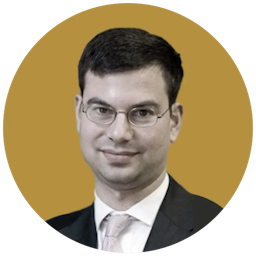To Reset Harvard and Higher Education, Put the Purpose First
Teaching, learning, and research are the reasons the institutions exist.

President Claudine Gay is out at Harvard, joining University of Pennsylvania’s Liz Magill, Stanford’s Marc Tessier-Lavigne, and Texas A&M’s Katherine Banks in the ranks of prominent higher education leaders abruptly exiting under pressure in the past six months and heralding hope that the era of decadence in American higher education is finally reaching the beginning of an end.
If Harvard and the other institutions want to turn things around, it will require more than mere personnel changes at the top. In the same December 19, 2023, column in which I predicted, “Absent rapid and dramatic improvements on the campus, Ms. Gay will be gone faster than one can say ‘Elizabeth Magill,’” I also wrote, “The problems are deep and go beyond any single individual.”
Where might governing boards start in an effort to restore public confidence in higher education, rebuild the reputations of institutions, and repair trust? The task is something like trying to put a derailed train back on track. The first thing is to get people to agree on the mission: teaching, learning, and research.
Asking what’s best for teaching, learning, and research helps cut through a lot of the other agendas that are being pushed. Other universities and colleges may have different missions but at many of the top institutions at least the professed mission is teaching, learning, and research. There were earlier historical missions, ranging from Christianizing the Indians (Dartmouth) to training Congregationalist ministers (Harvard, Yale).
A lot of the modern nonsense — loosening academic standards to promote racial diversity; boycotting Israel; divesting from fossil fuels; dismantling settler-colonialism and racial capitalism; providing professional training for bureaucrats of enemy countries, eradicating inequality — undercuts the teaching, learning, and research. It makes sense only if one thinks of it as substituting a new religion of “progressive” politics in the place of the old Protestantism.
What’s hampering the teaching, learning, and research missions? I see three interrelated main issues: lack of viewpoint diversity, antisemitism, and mediocrity. They are related at Harvard, which has been beset by undistinguished far-left faculty using shoddy scholarship to defend the hatred of Jews. The shoddy scholarship is basically, lies about Israel and the Jews. The culture of conformity and intimidation prevents all but the gutsiest students and professors from calling out the lies.
What helped save Harvard were the outsiders — Bill Ackman; Representatives Elise Stefanik and Virginia Foxx; the Manhattan Institute’s Chris Rufo; and John McWhorter. The insiders — the 700 faculty members, the Crimson editorial board, the Harvard Alumni Association executive board, the former presidents — defensively resisted what the faculty called “political pressures” and “outside forces.” Sometimes the “outside forces” create accountability where without them they would otherwise be absent.
Harvard professor Steven Pinker sketches a path forward emphasizing “free speech, institutional neutrality, nonviolence, viewpoint diversity, and DEI disempowerment.” Harvard professor Danielle Allen writes about “a culture of mutual respect with human dignity at the center” in contrast to “a shaming culture.”
The antisemitism advisers to Ms. Gay have good ideas, including enforcing the university’s existing codes of conduct, auditing the Harvard courses and programs that are based on antisemitism, and adjusting admissions standards. I’ve called for more viewpoint diversity among admitted students.
At some point, the institutions will also need some clarity on whether they are primarily American or global institutions. If Ms. Gay hadn’t resigned, she would reportedly have been headed off to Communist China to try to replace the vanishing Jewish and American money with overseas cash.
It would have been an astonishingly tone-deaf move in the face of increasing bipartisan concern about Communist China, and after a chairman of Harvard’s chemistry and chemical biology department, Charles Lieber, was convicted on six criminal counts related to his work for Communist China.
That Lieber scandal barely registered among the others — the manager of the Harvard Medical School morgue indicted for selling organs and corpses, the university discriminating unconstitutionally against Asian-American applicants in admissions.
Turning Harvard around will require not only the ideological acumen to understand what needs to happen but the management ability to make it so — not easy in a decentralized institution where lifetime tenure is common and humility is rare. If anyone can manage to succeed at it in a five- or ten-year term, the person would be well-positioned to run for president of the United States. Senator Sasse?

